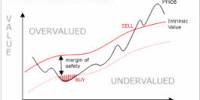A Collateralized Fund Obligation (CFO) is a type of structured financial product that is similar to a Collateralized Debt Obligation (CDO). It is a type of structured finance product that securitizes the cash flows from a portfolio of private equity funds, hedge funds, or other types of alternative investment funds. However, instead of being backed by a pool of debt securities, a CFO is backed by a pool of private equity or hedge fund investments.
It is a type of securitization involving private equity or hedge fund assets, similar to collateralized debt obligations. CFOs are a structured form of financing for diversified private equity portfolios, layering several tranches of debt ahead of the equity holders.
In a CFO, the assets are typically divided into several different tranches or classes, each with its own level of risk and potential return. The senior tranches are the least risky and offer the lowest returns, while the junior tranches are the riskiest and offer the highest potential returns.
The data made available to rating agencies for analyzing the underlying private equity assets of CFOs is typically less comprehensive than the data for analyzing the underlying assets of other types of structured finance securitizations, such as corporate bonds and mortgage-backed securities. Leverage levels vary from transaction to transaction, but leverage of 50% to 75% of a portfolio’s net assets has historically been common.
Investors in a CFO typically include institutional investors such as pension funds, insurance companies, and endowments. These investors are attracted to CFOs because they offer the potential for higher returns than traditional fixed-income investments, while still offering some degree of diversification and risk management.
The various CFO structures implemented in recent years have had a wide range of objectives, resulting in a wide range of structures. These variations are usually related to the amount of equity sold through the structure as well as the leverage levels.
CFOs were popular prior to the financial crisis of 2008, but their popularity declined after many of these investments suffered significant losses during the crisis. Today, CFOs are still used, but they are subject to more regulatory oversight and are generally viewed as a more complex and risky investment than traditional fixed-income securities. Overall, CFOs are used by institutional investors seeking exposure to a diversified portfolio of alternative investments, while providing liquidity and risk management through securitization.
















